China's first drama on fighting Covid-19 hits roadblock
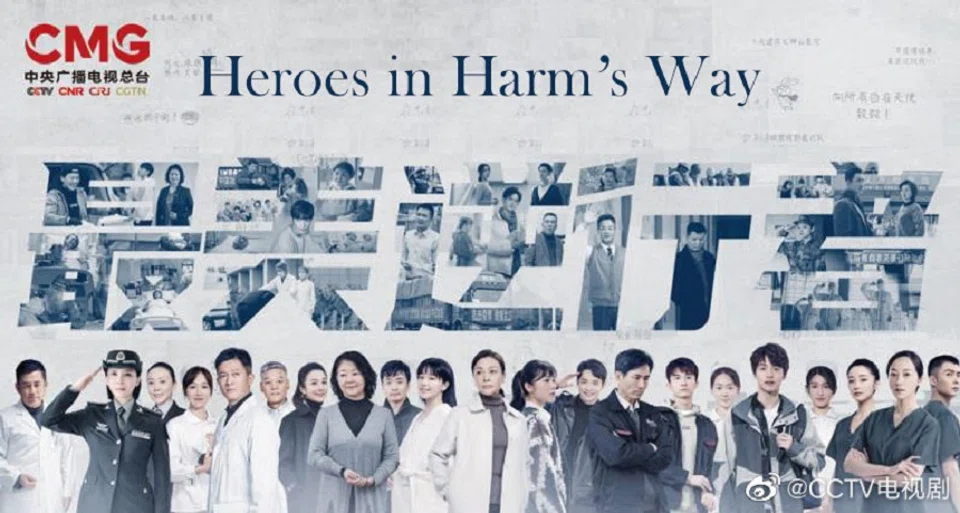
The hottest TV series in China now is undoubtedly Heroes in Harm's Way (《最美逆行者》, henceforth Heroes), a drama produced by China Media Group about the fight against Covid-19.
No one would have expected its first episode to cause controversy for twisting facts and disparaging women.
The drama has received much attention since its premiere two weeks ago. As of 30 September, topics related to the drama received 2.93 billion views on the Chinese social media platform Weibo, with over 3.44 million comments. Alas, all the feedback has been negative. The drama's score on China's Douban, an IMDb-like website, plunged from 2.4 to 2.1 out of 10. Currently, the website has disabled the ratings and comments function for the drama.
The key selling points of Heroes are that it takes reference from real life and that it is the first drama on the fight against Covid-19. Prior to its premiere, it had already generated much buzz. No one would have expected its first episode to cause controversy for twisting facts and disparaging women. For instance, contrary to reality, the drama depicted male volunteers signing up to be drivers when Wuhan formed its own transport teams during the city's lockdown. And when a higher-up requested that "a female comrade volunteer as well", the female drivers in the scene either tried to reject the request citing family reasons or looked uneasy. In the end, the one who stepped forward was a divorcee who apparently "did not have anyone else to look after except herself".
The public was enraged. Many members of the audience thought that such portrayals painted females in a negative light and showed that they were not enthusiastic in fighting the pandemic. Some netizens even dug up reports of female drivers organising transport teams during the pandemic to refute the portrayals in Heroes.
A netizen added, "In real life, they pushed females to the front lines. In publicity campaigns, they buried these women."
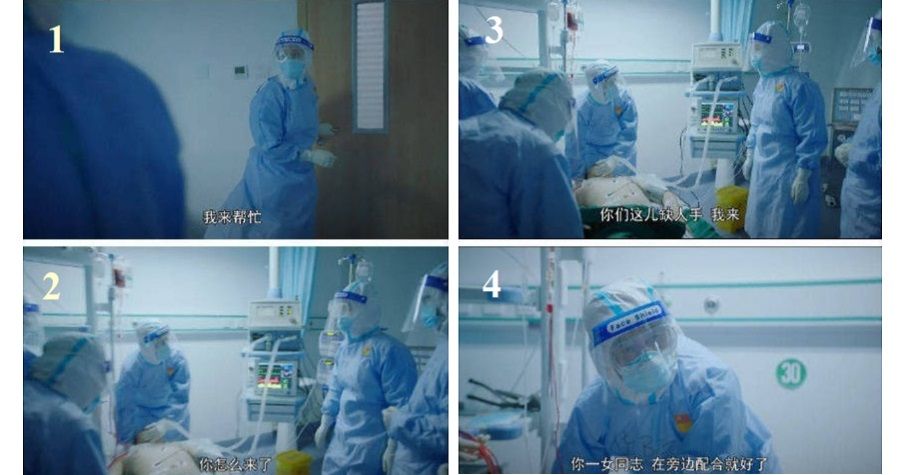
As more episodes aired, scenes of gender discrimination became even more apparent: a female doctor was asked to step aside in a surgery because of her gender; a female nurse was not allowed to work at the front line because her doctor husband had already done so and there would have been no one to look after the elderly and kids at home. Netizens pointed out that while these arrangements appeared to be for the good of women, they actually reinforced society's gender stereotypes and downplayed their contributions to the fight against Covid-19.
In actual fact, of the over 42,000 medical workers dispatched to help fight the coronavirus in Hubei, two-thirds were females. A female doctor who participated in the fight against Covid-19 posted an article refuting the discrimination against women as portrayed in the drama. She said, "We're no different from our male colleagues who had also gone to the front lines. We never thought about backing out." A netizen added, "In real life, they pushed females to the front lines. In publicity campaigns, they buried these women."
Netizens hit the nail on the head when they said that gender discrimination is not the biggest downfall of Heroes: "It is but one of the few problems that can be openly discussed."
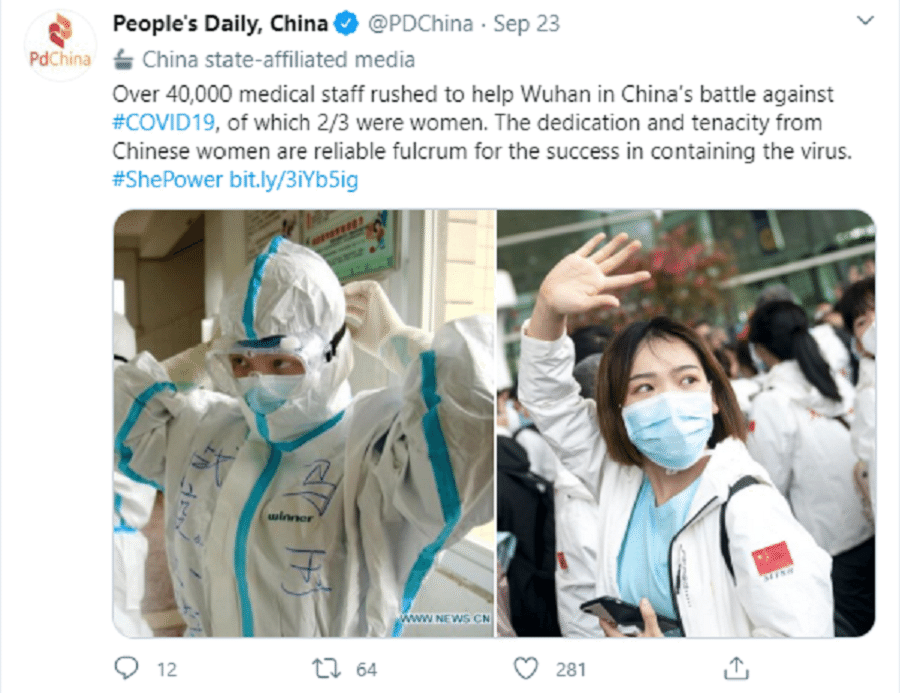
Scenes in Heroes were criticised for other ills apart from gender discrimination. For example, during the period when public transport was halted, a private hire driver who offered his services to drive doctors to and fro work was warned against driving unlicensed vehicles. In another scene, a middle-aged "woman" who demanded a nurse to clean up the toilet right after the latter had resuscitated a patient, was in fact, a man. Netizens pointed out that it was a male official who had made such an absurd demand in real life, not an ordinary woman on the street. Netizens hit the nail on the head when they said that gender discrimination is not the biggest downfall of Heroes: "It is but one of the few problems that can be openly discussed."
This has touched another nerve for Chinese netizens, who say that the show is already a disgrace, and now it is making a fool of China overseas.
China's netizens do not want China's image tarnished by propaganda
Even as the roasting of Heroes continues, the authorities have announced that the rights to the show have been sold to various countries and it will be aired overseas in various languages. This has touched another nerve for Chinese netizens, who say that the show is already a disgrace, and now it is making a fool of China overseas. Some even suspect that the director is a gaojihei (高级黑, one who indulges in high-level veiled criticism) who wants to "hand a knife to foreign powers" to strike blows at China - these people are calling for the show to be taken off the air immediately so as not to damage China's international image.
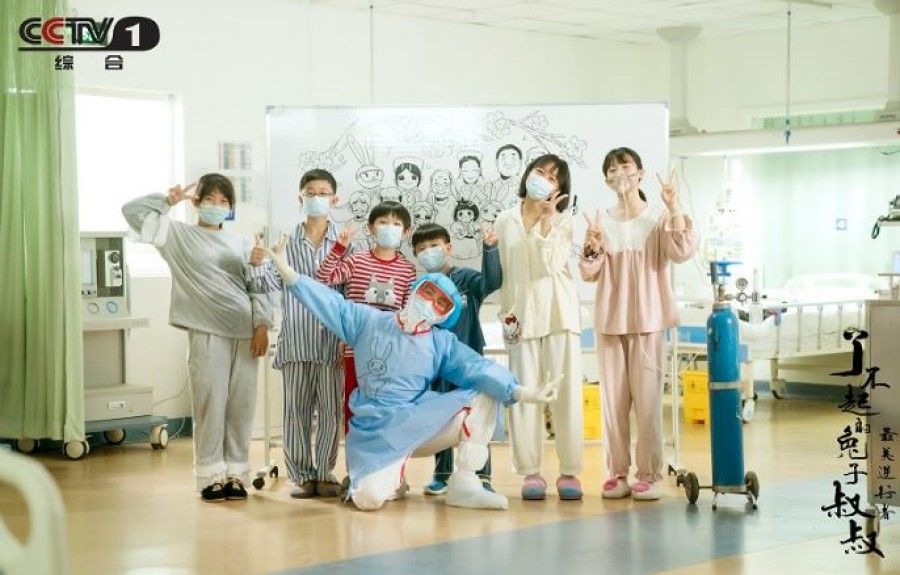
There is nothing wrong with a TV series taking some artistic license or exaggerating a little to bring out some drama; there is also no lack of unrealistic and poorly produced shows. The strong backlash to Heroes is partly because the shared memories of the pandemic run deep, and those who have personally been through it cannot accept the huge incongruity between the TV plot and real life. Also, expectations were high for this officially-produced TV series; people wanted it to be realistic and accurate, and to give a fair portrayal of everyone involved.
Youth in China want China's story to be told accurately
Alongside other failed propaganda attempts that did not "tell a good China story", Heroes is not only getting flack overseas, it has not won over domestic audiences either. This has to do with the production team not being sensitive to ground sentiment and not having a grasp of public opinion.
There is no lack of good material, so why is China unable to tell a good story that people approve of?
Take women's issues for instance. The contributions of female healthcare workers during the pandemic amid gender-related pressures has sparked much discussion this year. From female doctors being forced to shave their heads to heavily pregnant female nurses still going to the front line, and male superiors rejecting donated sanitary pads meant for female medical workers - these controversial incidents during the pandemic have made Chinese netizens more aware of gender issues and more conscious of gender equality.
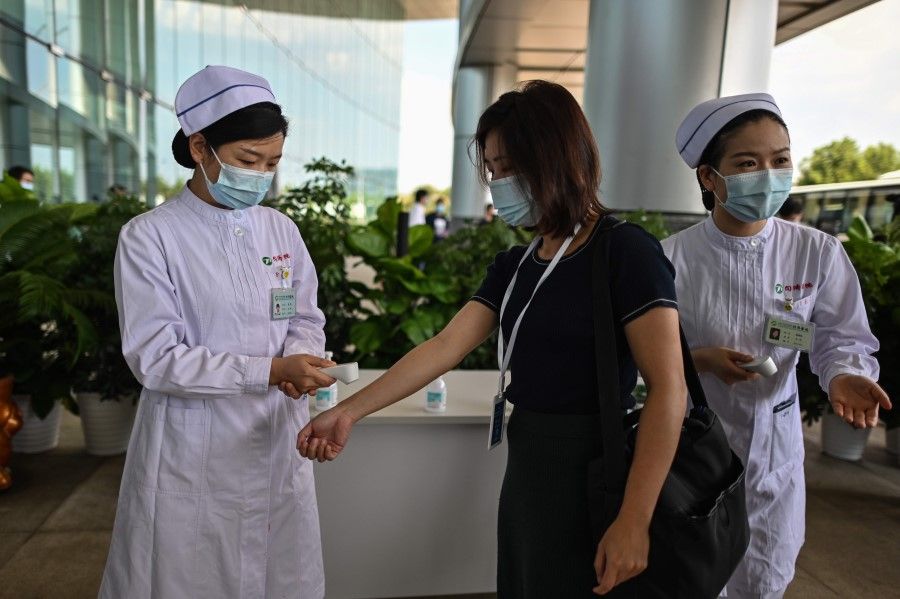
Given this context, it is not surprising that the creative team has been blasted by netizens for coming up with female characters from a stereotypically male viewpoint.
There is no lack of good material, so why is China unable to tell a good story that people approve of?
This is not just because official propaganda policy differs depending on whether it is directed inward or outward, which makes it easily contradictory, but also because with the flow of information today, the values and thinking of the Chinese public, especially the younger generation, is becoming more international.
The poor reviews of Heroes is a resistance to the unrealistic official narrative, and an expression of discontent by the younger generation against outdated propaganda methods. If propaganda mouthpieces cannot keep pace with times, not only will outward propaganda fail, inward propaganda will also slip and go their separate ways from the people.
